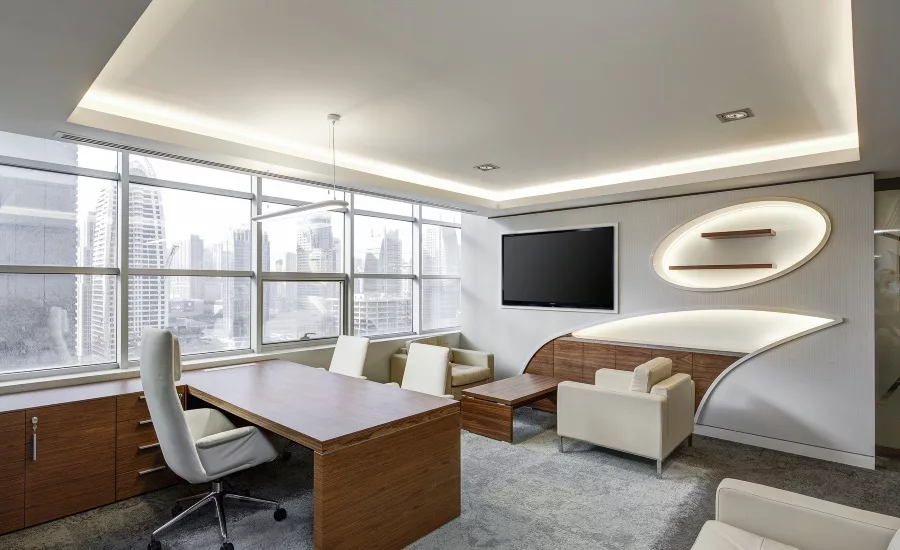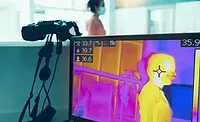Not-for-profit Office of the Future prototype aims to help enterprises around the world reopen safely

Workplace 2030 - a not-for-profit initiative to reimagine the office, is open in San Francisco. The concept is an epidemiologically-guided “office of the future” prototype that serves as an interactive learning center where workplace leaders can experience first-hand the latest workplace designs, technologies and collaborations for workplace health, security, confidence and comfort in one real-world space. The prototype office will be live in San Francisco through March 2021; and will move to other locales, including New York and Chicago as planned.
Under the leadership of Founder, Executive Director Brandon Cook and oversight of leading infectious disease epidemiologist Dr. Maureen Miller, PhD, Columbia University, Workplace 2030 aims to help protect the health of workers and drive economic recovery by enabling businesses to make informed and confident decisions on both when and how to reopen their offices. Workplace 2030 assembled a panel of ten leading workplace design and workplace technology experts to advise the initiative.
Over 50 of Bay Area’s largest employers have toured the prototype workplace in the last 2 months to experience the innovative concepts and technology, and now the space is available to any company for complimentary in-person (when permissible by local health guidelines) and virtual tours.
“Security, HR and Facilities leaders are tasked with reopening their company’s offices, yet no one has ever faced the current situation” said Cook. “By working hand-in-hand with an epidemiologist and experts, we will help clarify, from a scientific and prescriptive perspective, when and how to reopen – so as the vaccine becomes available and when infection rates decline, we can do so sooner and more safely than ever before.”
There are two tectonic shifts in how work is done today. First, all organizations must proactively protect employees against viral disease transmission for an indeterminate amount of time, likely well after a COVID-19 vaccine is available. Second, the majority of workplaces are permanently moving to a hybrid of remote and in-office work.
In four months and relying on over one million dollars worth of donated goods and services, Workplace 2030 successfully built a functioning “office of the future” designed to demonstrate solutions to these unprecedented challenges. The prototype serves as an educational resource available at no cost for workplace leaders evaluating how to deploy the latest technology and design to affordably upgrade their existing workplaces for enhanced safety and collaboration. The Workplace 2030 initiative also includes an online resource center with epidemiologically-reviewed academic data sources and original content from expert advisors.
“Corporations and their employees are eager to return to a sense of normalcy,” notes Dr. Miller. “How to do that is not always obvious, so we are providing free in-the-weeds how-to information for the business people on the front lines of these office reopening projects.” Dr. Miller, who consults for the public and private sector worldwide, helps Workplace 2030 to distill the latest academic research and health and safety guidelines into pragmatic, evidence-based recommendations. She advises on the development of all of the Workplace 2030 innovation use cases, and provides expert guidance free of charge online in Workplace2030.org’s ‘Ask an Epidemiologist’ section.
“People are expecting to go back to a workplace that is more restrictive, sterile, and isolating, but we’ve actually built one that’s more collaborative, welcoming, comfortable, while also advancing employee health and safety significantly” said Cook. “By building a real office we’ve been able to find and test the technology and designs that work in the real-world and put them together in a way that make people actually want to go back to the office.”
Make an appointment for a free virtual or in-person (when permissible by local health guidelines) tour here.
Looking for a reprint of this article?
From high-res PDFs to custom plaques, order your copy today!






